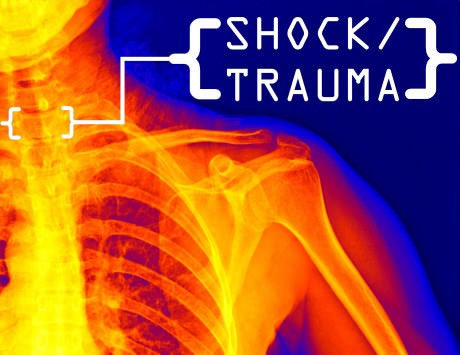Love, Car Crashes, and Brain Chemistry:
The True Story Behind Unstrung Harpist’s Shock/Trauma at the Capital Fringe Festival
The events that shape our lives can rarely be narrowed down to the results of one choice, and usually, when we try, it is only through the lens of hindsight that the confluence of circumstance becomes obvious. What we call fate might just as well be called the ability to determine cause by observing effect. Still, I often find myself wondering what would have happened if I’d made her drive.
It was a simple request. The roads are in bad shape; you’re more used to these conditions; can’t you take my turn? A massive cold front had swept through the DMV on January 31, 2007, bringing with it snow, ice, and temperatures in the teens. It was still dark when Julie and I walked out the door at six AM and got into my car, headed for a rehearsal in Frederick.
Visibility was so-so; some cars had their hazards on, while others zoomed along in the left lane at typical highway speeds. Neither rain nor sleet shall keep the DC resident from his appointed commute, I thought, slightly scornful. Still, as we progressed and things seemed to be going smoothly, I also found my foot getting heavier on the accelerator.
As you’ve probably guessed by now (determining cause by observing effect), along came the inevitable patch of black ice, the fishtail, the skid, the flips, and the sirens. The roof caved in on Julie’s side, exposing her head to the ground as we slid upside down along the ditch at the side of I-270. The impact broke her C7 vertebra, separated her skull along its natural fault lines, and opened up a five-inch gash on the right side of her head, just above the hairline.
She nearly bled out before they could get to her. Even after she was medevaced to UMMC’s Shock-Trauma ward, that puddle of frozen pink persisted next to me on the ground, becoming a fixation of mine over the next three hours when I did not know if she was alive or dead. As it turned out, she was alive, and remarkably had sustained no paralysis or brain damage. A month later, she had surgery to place a titanium plate and four screws in the back of her neck to stabilize her spine. Two months after that, she was driving and exercising again.
You may ask, and rightly so: How can I write about this event so clinically, so matter-of-factly? The answer to that question is one I wouldn’t understand for several years afterward, but it’s at the heart of why I wrote this play. The fields of brain trauma and post-traumatic stress are only beginning to be understood by psychologists, let alone me.
Nonetheless, I’ve come to learn that events like this one–seriously traumatic experiences in our lives–cannot be viewed through the comforting lenses of hindsight and rationalization. They simply are. We can’t form those protective shells around our memories of these moments, so we just relive them, over and over, at their original intensity. Our brains rewire from the constant stress. Our heart rates go up whenever we hear a siren. We are constantly in fight-or-flight mode.
This rewiring has a clinical name: post-traumatic stress disorder. Though my memories of the crash and its aftermath are still remarkably vivid and affecting five-and-change years later, there’s no comparison with what Julie’s been through. Her PTSD comes not just from painful memories but the hard reset her brain endured due to physical injury. The fact that it went undiagnosed for so long–over two years–only compounded the problem.
Over the course of those two years, our relationship underwent incredible hardships. She tried not to blame me for the accident, but couldn’t help but blame me for pulling away; I tried to be patient with her recovery, but quickly grew impatient with her sudden mood changes and seemingly irrational demands. We ran out of money. We very nearly fell apart. Yet somehow, improbably, we made it to the point where we knew her diagnosis. Things started, achingly slowly, to get better. They’re still getting better, though there’s a lot of work to be done.
All of this inspired Shock/Trauma, which Unstrung Harpist Productions is premiering at the 2012 Capital Fringe Festival. The play is a work of fiction, but it draws heavily from what she and I experienced that day and in the years that followed. I wanted to tell this story, not just to follow the old literary adage, Write what you know, but to improve the collective understanding of PTSD, of is causes and effects, a little bit.
I’ll never know what would have happened if she’d driven to rehearsal that morning. Some decisions only become important in hindsight. Or perhaps it was fate. Either way, the story deserved to be told.
Evan Crump
Artistic Director, Unstrung Harpist Productions
Shock/Trauma
by Evan Crump
directed by Tom Prewitt
at the Goethe Institut-Gallery
812 7th Street NW
Washington, DC 20001
Performances:
Sunday, July 15 @ 4 PM
Thursday, July 19 @ 8:30 PM
Saturday, July 21 @ 10 PM
Tuesday, July 24 @ 6:15 PM
Sunday, July 29 @ 12:30 PM
Purchase tickets starting June 18th here.






